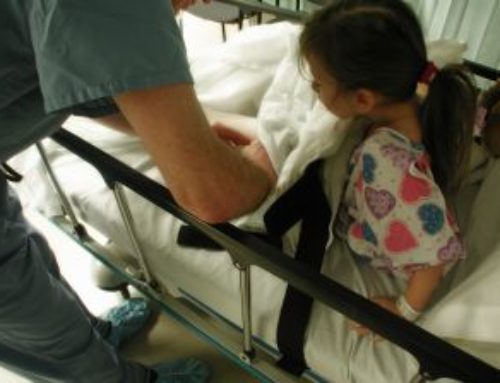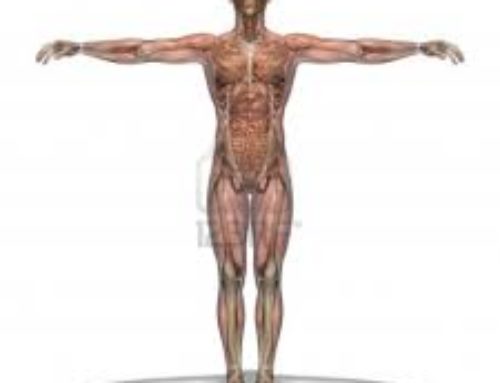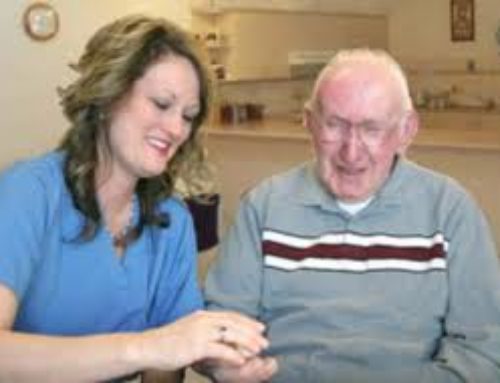
Anorexia nervosa is a severe emotional, eating disorder that is characterised by a misperception of body image. Individuals suffering from anorexia nervosa have a distorted body image, which means that while they may be extremely underweight, they believe they are overweight. Sufferers also often have an obsessive fear of gaining weight. In popular media anorexia nervosa is shortened to anorexia. It should be noted that anorexia refers simply to having a loss of appetite, while anorexia nervosa is an emotional disorder that leads to appetite suppression.
While there is no specific cause of anorexia nervosa, there are a number of factors that can lead to the disorder, such as severe trauma or emotional stress at the time of puberty, living in a culture that puts a high value on being thin, tendencies toward perfectionism or a family history of the illness. Having parents that do not show emotional warmth, or who are overbearing, controlling or critical can also lead to the development of anorexia nervosa.
The most obvious symptom of anorexia nervosa is drastic changes in weight and the appearance of individuals with the condition. Sufferers undertake extreme measures to maintain their body weight, which may include starvation, purging, excessive exercise and weight-loss drugs. These behaviours can have dangerous affects on the body and can lead to electrolyte imbalance, heart failure, suicide or death from starvation.
Anorexia nervosa can be triggered by a traumatic or stressful event and it is usually accompanied by other emotional difficulties such as depression. The disorder most commonly affects the female population but can affect males as well. Anorexia nervosa is becoming increasingly common, especially among young women in industrialised countries where cultural expectations encourage women to be thin. However the condition is affecting a growing number of men, especially athletes and those in the military, where being lean and thin is important. Anorexia nervosa most commonly appears in adolescence, and affects 3% of teenagers.
Cognitive-behavioural therapy, often in combination with antidepressants, can be a very effective therapeutic approach for the treatment of anorexia nervosa. This type of treatment helps the sufferer to develop a healthy body image and to learn better ways to deal with stress and anxiety. Complementary and alternative methods of treatment such as vitamin supplements can also help to stimulate appetite, and restore nutritional balance.
It can take a person a long time to recover from anorexia nervosa, which is often between 4 and 7 years. People who are recovered often retain traits of the condition, such as remaining very thin and striving for perfection. Developing healthy eating habits and strong, positive body image at a young age are the most effective ways to prevent young people from developing anorexia nervosa.
Symptoms
The most important sign of anorexia nervosa is severe weight loss. This can be accompanied by other physical or psychological symptoms. There are two main types of anorexia nervosa, and the symptoms of the condition can vary slightly with each type.
Restricting Type
In this case, the condition is characterised by dieting, fasting, or excessive exercise.
In this case, the condition is characterised by dieting, fasting, or excessive exercise.
Binge-Eating/Purging Type (anorexic-bulimic)
This type is characterised by self-induced vomiting or misuse of laxatives, enemas, or diuretics as a form of maintaining weight.
This type is characterised by self-induced vomiting or misuse of laxatives, enemas, or diuretics as a form of maintaining weight.
Besides severe weight loss, other physical signs of the condition may include:-
- Menstruation that is irregular or absent
- Dry, pasty skin or thinning hair
- Frequent stomach upsets such as bloating
- Cold hands or feet that can also be swollen
Behavioural symptoms of the illness are usually centred around exercise, food and eating. They may include:-
- An obsession with body size, weight, body image or weight loss
- Compulsive exercising that is excessive
- Hoarding food
- Cutting food into minuscule pieces or only eating one type of food
- Concealing food or refusing to eat in front of others
- Intense planning of strict diets or eating habits
The psychological signs of anorexia nervosa are:-
- Distorted body image. This means that the way the individual believes they look is very different to their actual appearance
- Refusal to acknowledge the severity of the condition
- Depression. These are feelings of hopelessness, loss of self worth, disinterest in friends, activities or relationships and general emotional disconnection. Signs of depression can also include irritability or insomnia.
- Obsessive-compulsive behaviour. This is the excessive need to control ones personal environment, such as keeping it fanatically clean or tidy
Diagnosis
The diagnosis of anorexia nervosa relies primarily on the signs and symptoms described above, which can be assessed by a physician. Your doctor may also ask you a series of questions. These may include question like:-
- Do you believe that you are overweight, even though others say you are not?
- Have you lost a large amount of weight recently?
- Do you find yourself constantly thinking about food, exercising or eating?
- Do you lose control over how much you eat?
If anorexia nervosa is suspected, then laboratory tests may be required to assess the health of the individual. For example, blood tests can reveal anemia (lack of iron or vitamin B12), electrolyte levels (these can be affected by excessive laxative use), amylase levels (this enzyme increases when there is frequent vomiting), or kidney, liver, and thyroid function. A person who is diagnosed with anorexia nervosa may then require a range of people to help them overcome or at least manage the condition. This may include a physician, a psychologist or psychiatrist and a dietician.
Treatment
Unfortunately, there is no completely effective treatment for anorexia nervosa, and recovery can take many years. The successful treatment of anorexia nervosa requires that both the physical and psychological aspects of the disorder are addressed. The most important part of treatment is restoring body weight, which may require hospitalisation if the individual is continuing to lose weight despite out-patient treatment or is at risk developing complications.
Treatment options may include:-
Cognitive Behavioural Therapy
Cognitive behavioural therapy is very effective for the treatment of anorexia nervosa, and is based upon the notion that the condition develops in response to a life stressor. Confronting the sufferer’s fears and addressing their avoidance behaviours can develop new problem-solving skills. Cognitive behavioural therapy aims to increase awareness of negative thought processes and to change them. The techniques taught in this treatment encourage sufferers to evaluate and challenge their automatic thoughts, examine their underlying assumptions, and replace them with realistic beliefs and actions based on reasonable self-expectations, thus leading to healthy thoughts and self perceptions, which in turn lead to healthy eating habits and healthy weight.
Medications
Anorexia nervosa can sometimes be treated using antidepressant drugs, similar to those used in the treatment of depression and obsessive-compulsive disorder, because many of the symptoms are similar. The different types of medications that can help treat anorexia nervosa include:-
- Serotonin reuptake inhibitors such as fluoxetine, which can increase weight and improve mood
- Antihistamines such as cyproheptadine can also stimulate weight gain and improve mood
- Hormones such as estrogen and progesterone can be used to restore regular menstruation, which can be affected by severe weight loss
Lifestyle changes
People with anorexia nervosa must alter their eating habits so that they become regular and also healthy. They must also begin to change their self-image so that their self-perception is less distorted. This can often be achieved in therapy and by joining support groups.
Nutrition and Dietary Supplements
Many people with anorexia nervosa have vitamin and mineral deficiencies. These can be alleviated by an improvement in diet, and also by taking dietary supplements.
Family Therapy
Family therapy encourages people suffering from anorexia nervosa to get better by helping their family to understand the seriousness of the illness, and also to identify any ways in which they may be inadvertently contributing to it.
The most important thing to remember when treating anorexia nervosa is to use a combinatorial approach because it is both a psychiatric illness and an eating disorder.
Complications
The medical complications associated with anorexia include:-
- Hormonal changes that can lead to stunted growth, osteoporosis and infertility
- Increased cholesterol levels
- Heart attack
- Anemia
- Difficulties becoming pregnant, increased risk of spontaneous abortion, low birth weight babies and birth defects
- Death. Suicide is responsible for half of the fatalities associated with anorexia nervosa
Risk Factors
- Gender and age. Anorexia nervosa primarily affects adolescent females, however approximately 10% of people with the diagnosis are male.
- Living in an industrialised country where there is a high cultural value on thinness.
- Depression is associated with the development of anorexia nervosa. Having family members with depression also appears to increase the likelihood of developing eating disorders.
- Anxiety disorders, such as obsessive-compulsive disorder or phobias, are also associated with the illness.
- Participation in activities where a large emphasis is placed on thinness, such as ballet, modelling, running or dancing
- A history of trauma such as death of a family member or sexual abuse
- Extensive or excessive dieting
- Having feelings of inadequacy, social inhibition, extreme sensitivity to negative comments or criticism, and avoidance of relationships, both at work and on an intimate level.






Leave A Comment